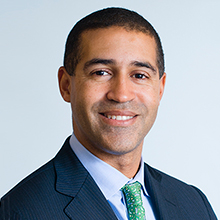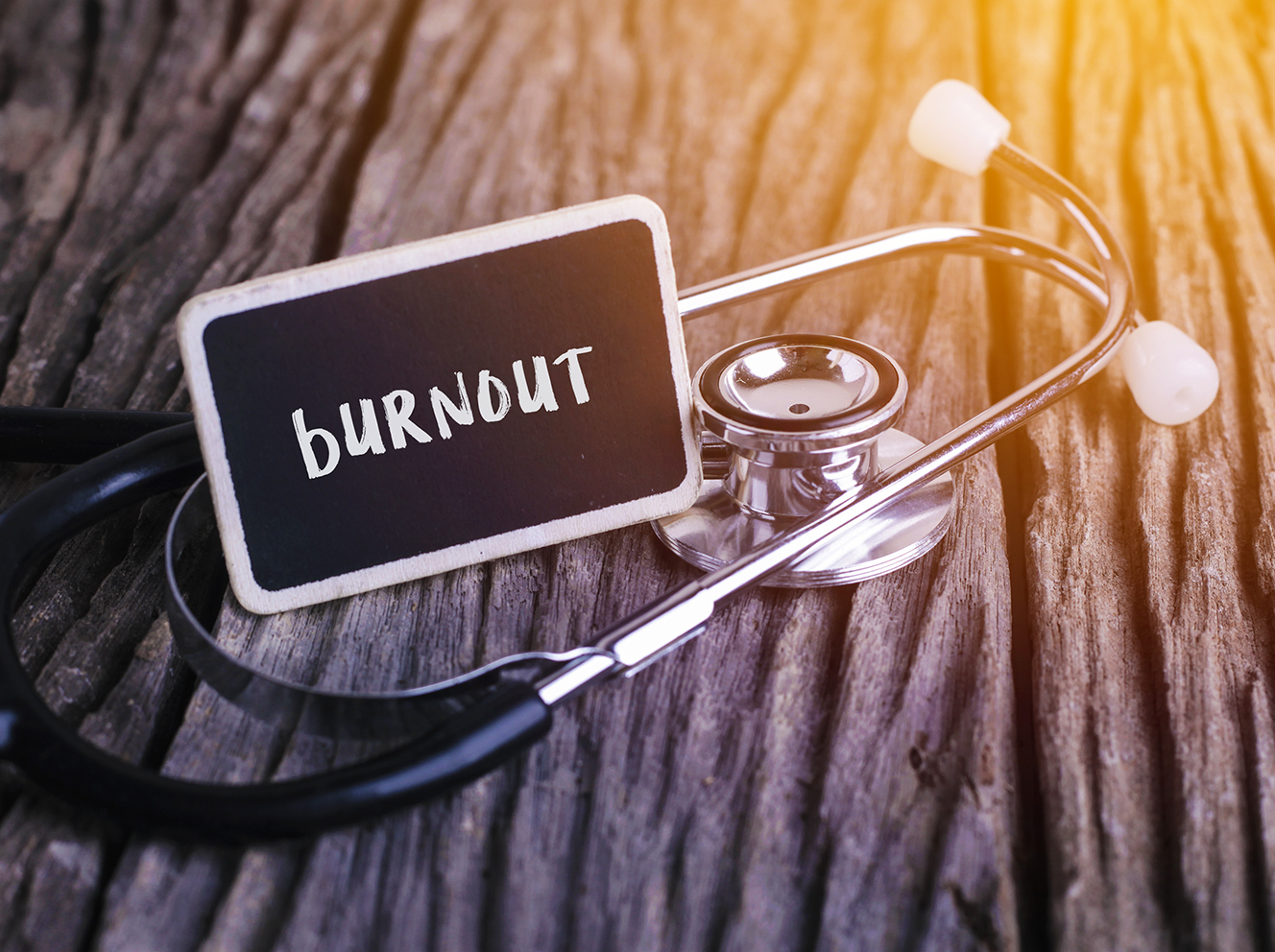Burnout can be described as a state of emotional, physical and mental exhaustion caused by excessive and prolonged stress. It occurs when someone feels overwhelmed, emotionally drained and unable to meet constant demands. The American Medical Association deems burnout among physicians an epidemic in the United States, with 63% of physicians saying they have experienced it. Although exacerbated by the COVID-19 pandemic, physician burnout is not a new phenomenon. Data from as early as 2012 show an increase in burnout in health care, especially in young physicians and women who are balancing both their careers and family lives.
William Curry, MD, neurosurgeon and chief medical officer at Massachusetts General Hospital has a lot to say about physician burnout and its important connection to well-being. “To prevent burnout — something that is incredibly hard to treat once someone is there — we need to focus on our colleagues’ overall well-being by providing resources and support.”
We asked Dr. Curry to expand upon the importance of addressing burnout in health care, and what Mass General is doing to promote and improve employee well-being.
Let’s start with the basics. What is burnout in health care?
Burnout in health care has several dimensions. It is defined as a sense of overall fatigue, loss of enthusiasm, joy and meaning in one’s work and, at times, cognitive symptoms such as depersonalization [the feeling of being disconnected from one’s own body and thoughts] and loss of empathy. It can be an interesting dichotomy because people can have a high level of career satisfaction — for example, they are committed to and proud of their organization’s mission — but have a decreasing sense of fulfillment and engagement because of other factors impacting personal well-being.
Over the last decade, what has triggered an increase in burnout?
The pandemic took an obvious toll on health care — not only the stressors during the height of it, but its aftermath as well. The acuity of patients is higher than it was before COVID, likely because of delayed care, and we are facing staffing shortages. We’re still recovering operationally.

But, prior to 2020, there were other factors impacting burnout rates. For example, the introduction of the electronic medical record: It was designed to streamline care and information, but it was not designed with the provider-patient relationship in mind. Communication between patient and provider has changed as a result of these nuances, and we’re still trying to figure out how to navigate it.
What are the negative consequences of burnout in health care?
There are measurable consequences associated with burnout. For patients, physician burnout could negatively impact quality and safety, increase medical errors, reduce access and decrease patient satisfaction — all of which can increase cost. For health care generally, burnout increases physician attrition — we see physicians increasingly leaving the field, which is extremely expensive financially and, also, damages morale. You can’t simply replace one physician with another; professional knowledge about the patients and institution is lost, again impacting the quality of care. It’s cyclical in nature and disruptive to culture and camaraderie.
What is Mass General doing to combat burnout?
A lot of our focus is on well-being. As in any career, we know there are hard moments where you grind, but it’s well-demonstrated that if 10 to 15% of your time is spent on something that’s truly meaningful to you, overall well-being greatly improves. We’re working toward a concerted, collaborative effort across the hospital that offers opportunities for providers to focus on the work that is most meaningful to them. We’re intentionally creating opportunities for colleagues to engage with one another directly and to rebuild community — an increasing challenge in this remote, post-pandemic world. Also, there is a major effort across Mass General Brigham to improve and modify the electronic interface between providers and patients, optimizing efficiency and access.
Culturally, we’re working to improve how we communicate. We want to be clearer about communicating Mass General’s values internally. Communication is key, and listening is equally as important. Better understanding the needs of our physicians, rather than leading by and with assumptions, will guide us into a future where workforce well-being is woven into every aspect of our infrastructure.
If you would like to learn more, please contact us.
Massachusetts General Hospital is hosting the MGH Employee Wellness Summit at the Wyndham Hotel on Wednesday, November 8, 2023. The event, championed by Dr. Curry, is presented by the Mass General Well-Being Collaborative — a multidisciplinary group dedicated to addressing and supporting the well-being of hospital staff. For more information, please reach out to mghwellbeing@mgb.org.

